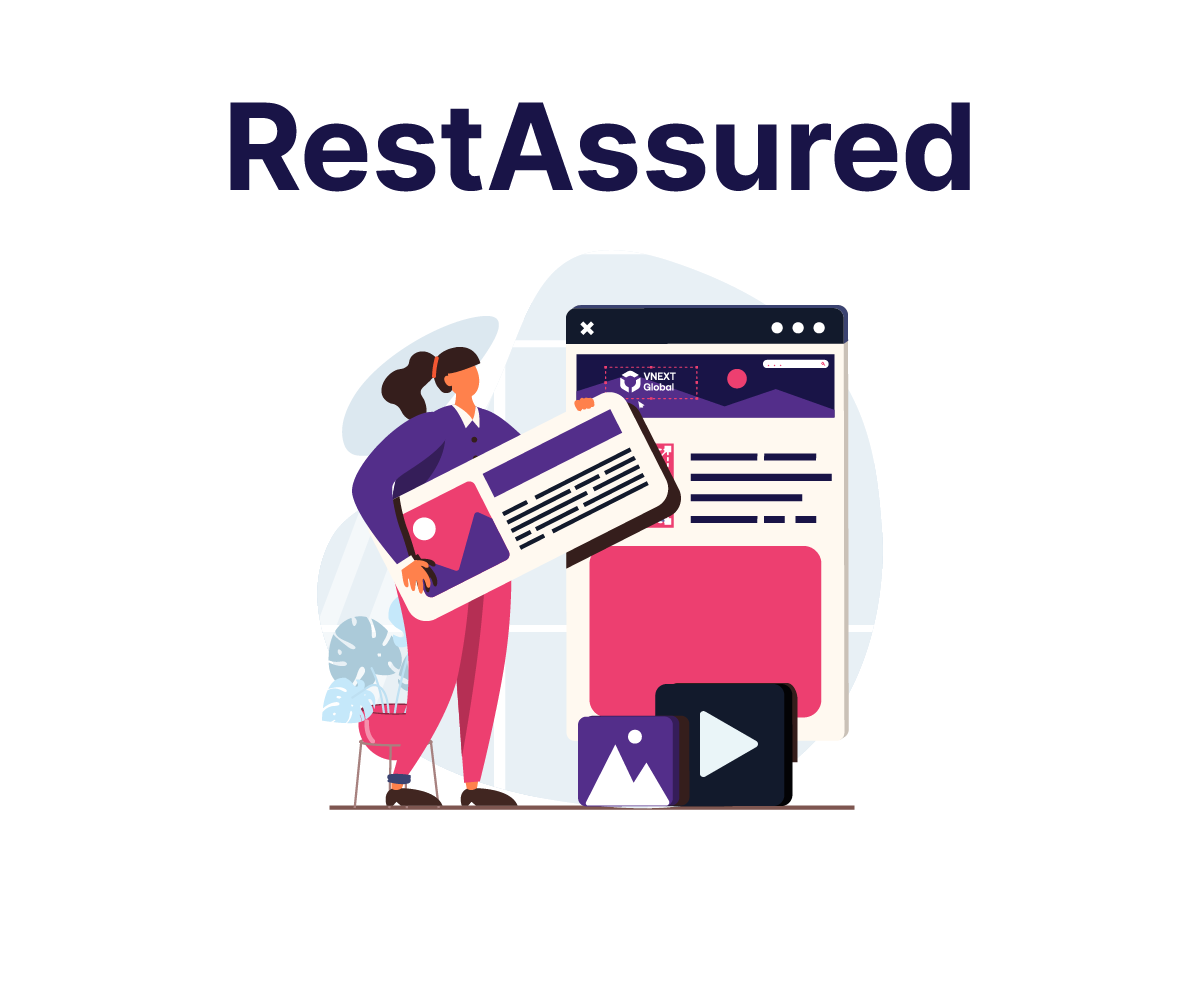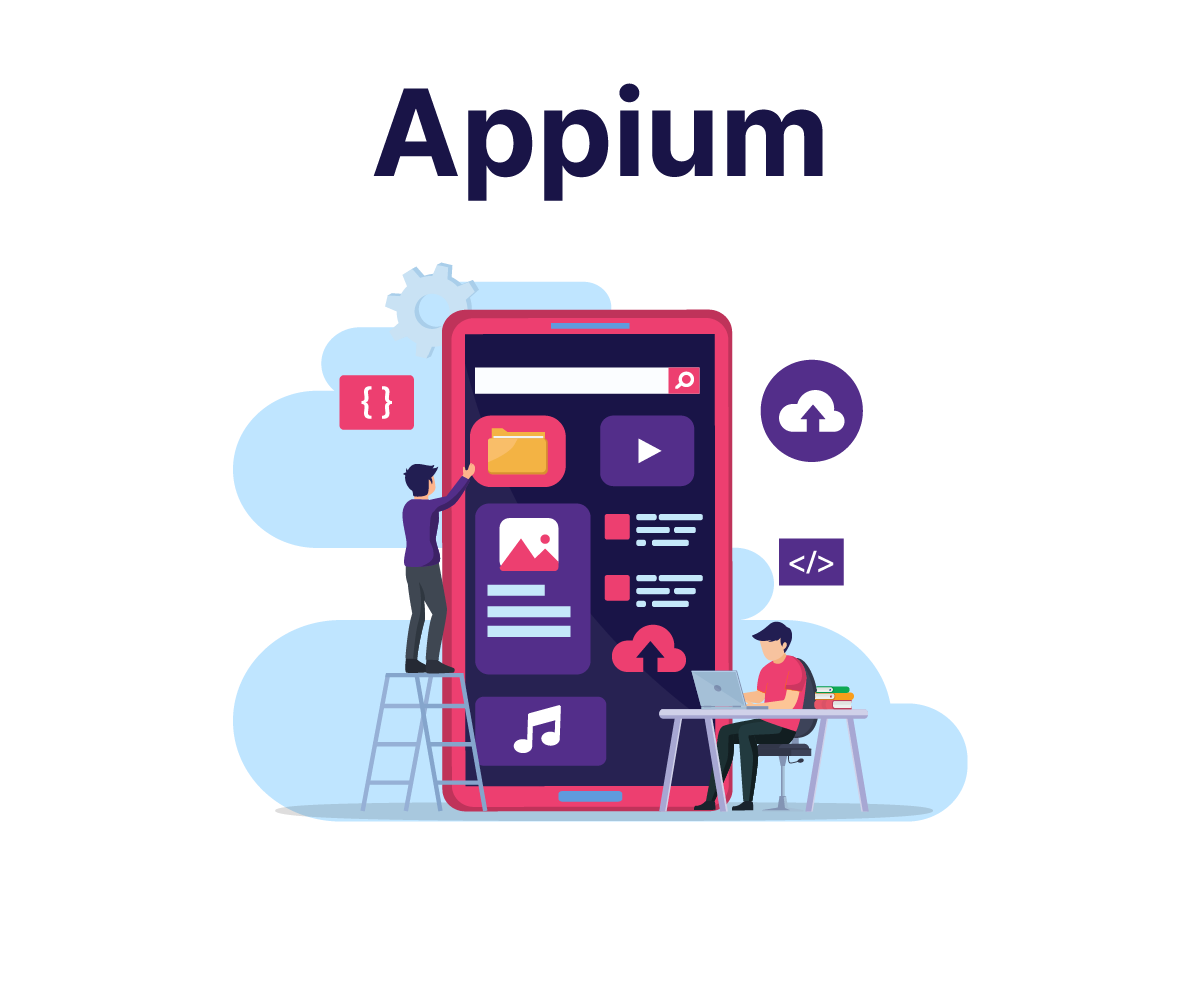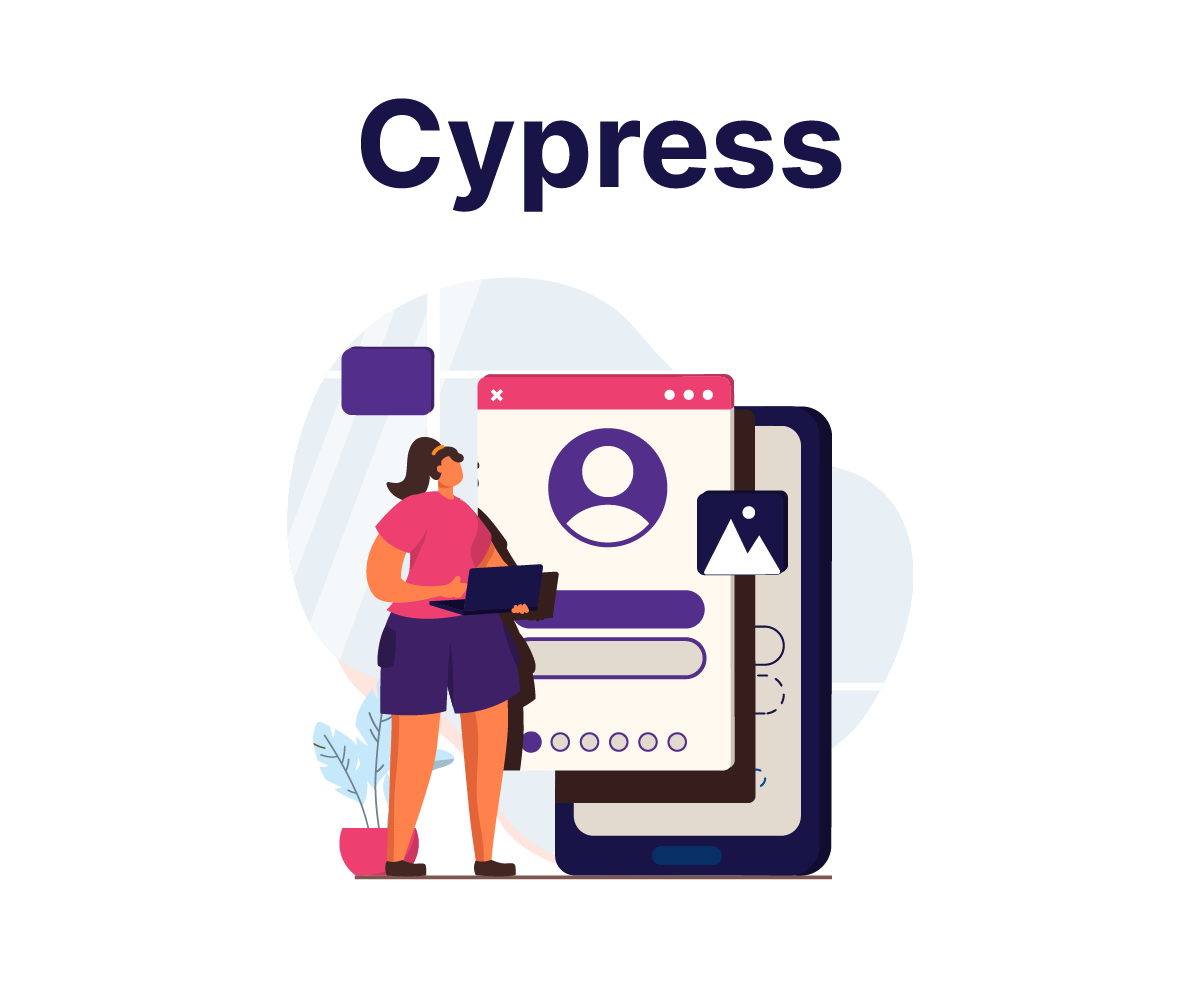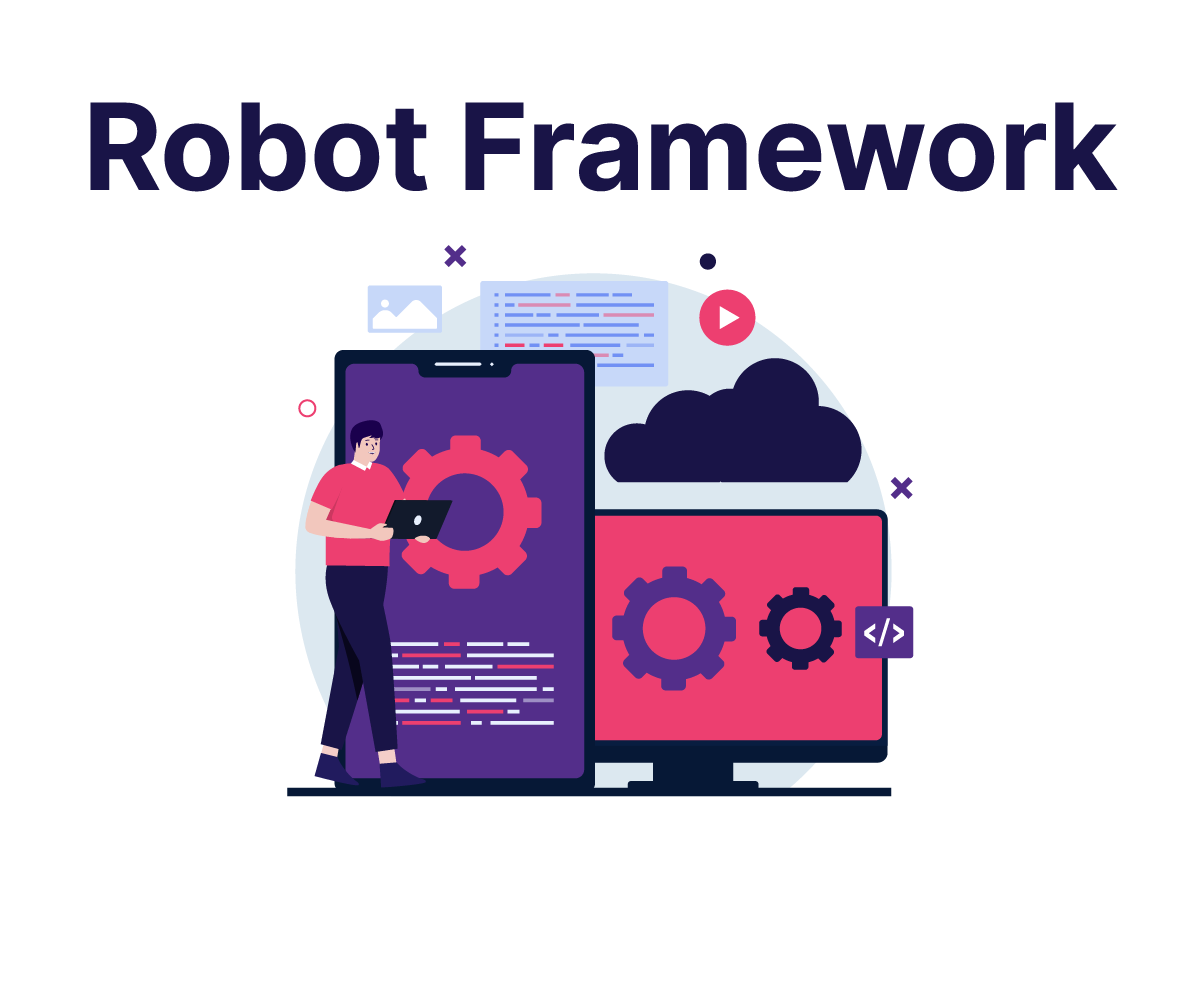Testers execute a variety of different automated software testing while the team develops software. Automation testing frameworks are essential parts to develop and execute automated tests. Different automation testing framework types ensure that testers have access to the results at the appropriate stage of the development process. In this article, VNEXT Global will suggest the top 5 automation testing frameworks mostly used by our senior testers.
Top 5 Automation Testing Frameworks Suggested By VNEXT Global
1. Selenium
Selenium is a popular automation testing framework. It is an open-source testing tool that has a wide range of features. Selenium has become multi-functional and capable as a result of keeping up with the progress of web development. Since it is script-based and adaptable to many settings, Selenium gives engineers fine-grained control over the writing and running of test scripts.
Selenium can support different programming languages, platforms, and browsers. Additionally, Selenium enables mobile testing on iOS and Android. It contains many add-ons, plugins, and extensions. Companies in various domains have adopted Selenium in many initiatives like Continuous Delivery, Agile, and DevOps.
Advantages of Selenium
- Support many programming languages
- Operate and support across multiple Operating Systems (OS) like Windows, Mac, Linux, and UNIX
- Support across multiple browsers, such as Internet Explorer, Chrome, Firefox, Opera, and Safari
- Enable constant updates and upgrades
- Make extensions easy to develop, customized actions and manipulate at an advanced level
Disadvantages of Selenium
- Lack of technological support
- Only works with web-based programs
- No integrated reporting
- Does not automate barcodes, captcha
- Cannot perform testing for the images

2. RestAssured
RestAssured is another common framework for automation testing. Programmers and developers utilize the open-source RestAssured Platform, a Java-based framework, to test and validate REST services. The RestAssured Framework offers a Domain-Specific Language (DSL) to effectively construct and write powerful tests for RESTful APIs because it was designed to cater to the various testing needs.
The RestAssured framework also supports clean coding and Behavior Driven Development (BDD) for improved readability and efficient testing operations. REST Assured makes it simple to integrate well-known testing frameworks, such TestNG and JUnit runner, which are used by businesses to evaluate their REST web services. This simplifies the testing tasks.
Advantages of RestAssured
- Requires less coding as compared to Apache HTTP Client
- Easy and straightforward to set up
- Enable CI/CD integration, such as integrating with the JUnit and TestNG frameworks
- Have very good support for various API authentication mechanisms
- It contains a built-in reporting function.
Disadvantages of RestAssured
- It does not explicitly support SOAP APIs
- Prerequisite knowledge of the Java programming language is required.
- Not exclusively thread-safe.

3. Appium
Appium, a frequently-used type of automation testing framework, has quite few tools. As a result, the process is simple and is obviously geared toward automating mobile test cases. It is an open-source framework for testers to write and execute numerous tests while also tracking test results.
Appium offers proper information, such as test data, performance data, pictures, and test movies. Additionally, it may produce thorough reports and dashboards that can aid testers in fully comprehending their applications.
An exciting feature of Appium is its remote testing capability, which enables numerous teams dispersed all over the world to execute tests in a collaborative manner. This feature is in addition to parallel testing. The Appium testing cloud is used for this.
Advantages of Appium
- Support many programming languages
- Support both iOS and Android using the same API
- No need to install any extra software to support
Disadvantages of Appium
- Configuration needed to set up Appium for iOS and Android is complex.
- Only one iOS device at a time can be run in Appium.
- Automation support for Android 4.1 or lower is not present.
- Appium inspector cannot be run on Windows.

4. Cypress
Cypress, another recommended automation testing framework, is particularly interested in end-to-end tests that employ contemporary JavaScript frameworks. Projects developed using cutting-edge frameworks like Vue, Angular, and React work especially well with Cypress. Additionally, it has the power to transform server-rendered apps.
Cypress is highly renowned for its extensive and exhaustive documentation, as well as the numerous libraries that are offered. With lightning-fast test generation and execution, features like DOM modification and shadow DOM may be utilized to build robust end-to-end testing scenarios.
In addition to parallel test execution, Cypress also permits network traffic interception and application code mocking—features that are difficult to find in other test automation solutions with an emphasis on end-to-end testing.
Advantages of Cypress
- Simple and time-saving to set up
- Debug and implement fast
- Allow to test with API inspection
- Deliver quick test execution
Disadvantages of Cypress
- Cannot test multiple tabs or multiple browser windows at the same time
- Support only JavaScript
- Does not allow to visit two different superdomains in the same test

5. Robot Framework
Robot Framework, the last automation testing framework mentioned in this article, is a free, open-source framework for automation acceptance testing. It uses a variety of test case writing techniques, including keyword-driven, behavior-driven, and data-driven styles. It is really simple to comprehend. In a tabular structure, test cases are written using a keyword-style. Robot Framework well supports open source, external libraries and technologies that can be used for automation testing.
Advantages of Robot Framework
- Easy to install
- Work for both mobile and web apps
- Use a low-code approach
- Compatible with Windows, macOS, Unix, and Linux
- Supports different programming languages
- Supports many browsers
- Works well with Appium and Selenium libraries
Disadvantages of Robot Framework
- Difficult to customize HTML reports
- Does not support parallel test execution
- Hard to debug

Final thought
Automation testing frameworks play a vital role in the success of software testing projects. Here are top 5 automation testing framework types VNEXT Global suggests with a view to helping you to choose the most suitable one for your business.
If you are looking for a trusted IT partner providing automation testing services, VNEXT Global is the ideal choice. With 14+ years of experience, we surely can help you to optimize your business digitalization within a small budget and short time. Currently, we have 400+ IT consultants and developers in Mobile App, Web App, System, Blockchain Development and Testing Services. We have provided solutions to 600+ projects in several industries for clients worldwide. We are willing to become a companion on your way to success. Please tell us when is convenient for you to have an online meeting to discuss this further. Have a nice day!












